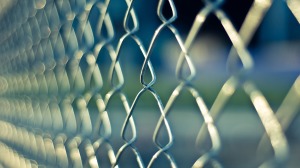 Published by The Free Lance-Star
Published by The Free Lance-Star
When a child acts out in school, it’s a problem for everyone involved—fellow students, teachers, administrators and the child’s parents. But it may be the child and the community at-large that end up with the most burdensome problem of all, given the likelihood in Virginia that the student will either be suspended or turned over to the police.
At first glance, the issue for schools might seem straightforward: Removing a child who causes disruption or creates a distraction solves the immediate problem. Why should a troublesome child here or there disturb the learning environment for all the rest?
But in reality, this is the easy way out for the schools. It doesn’t address the core issue, but rather rubs salt in a wound that will fester in the child and the broader community in the long run. Society should know from experience that ostracizing an individual or a class of people makes a situation worse.
When schools suspend a student or refer the student to law enforcement, the student falls behind in his studies, and is more likely to distance himself from the educational process and become a regular customer of the criminal justice system.
According to a 2015 report from the Center for Public Integrity, Virginia has been a national leader in school referrals to law enforcement. At a rate of 16 referrals per 1,000 students, our commonwealth was at nearly triple the national average of 5.8 per 1,000. The center, a Washington-based nonprofit, nonpartisan research group, also found that Virginia referrals of black and disabled students were about 25 and 33 per 1,000, respectively, compared to 10 and 11 per 1,000 nationally.
Though the report was based on 2012 statistics, and state officials say the state numbers have improved since then, Gov. Terry McAuliffe was nevertheless prompted last fall to announce his “Classrooms not Courtrooms” program. The initiative is designed to find alternative and more productive ways of dealing with student behavior problems than kicking the kids out or calling the cops.
A recent report by the JustChildren Program, an advocacy project of the Legal Aid Justice Center in Charlottesville, focuses on the problem in Virginia. During the 2014–15 school year, it found, Virginia schools issued 126,000 long- and short-term suspensions to nearly 72,000 students. More than 20 percent of those suspensions—some 27,000—were handed to pre-kindergarten and elementary school children.
To be clear, while overall percentages of student suspensions are generally lower in Fredericksburg-area school divisions compared with the more urban and highly populated areas of the state, the inflated percentages of minority and disabled students suspended here mirror the statewide trend.
Many schools across the state are participating a program called Positive Behavioral Interventions and Supports, or PBIS, which the governor has made part of the initiative. It is designed to train educators in how to mentor and more constructively deal with student behavior issues within the school. Studies indicate the program and others like it are working.
Critics counter that trouble-making students deserve discipline, not “coddling.” But such a view does not recognize the potential value of a child whose environment at home and in his community may feed the anger that manifests itself in school.
The pipeline between classrooms and the courtrooms does no one any good. The answer is found in replacing negative influences with positive reinforcement. It’s not the easy way out, but then changing things for the better never is.




